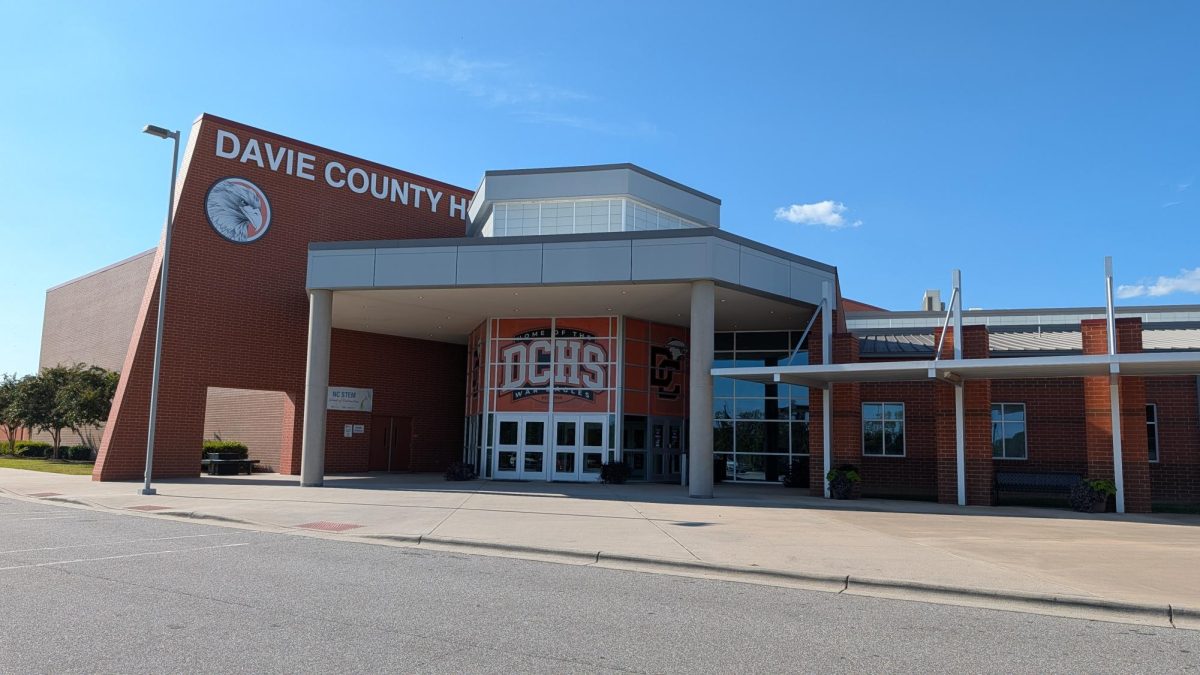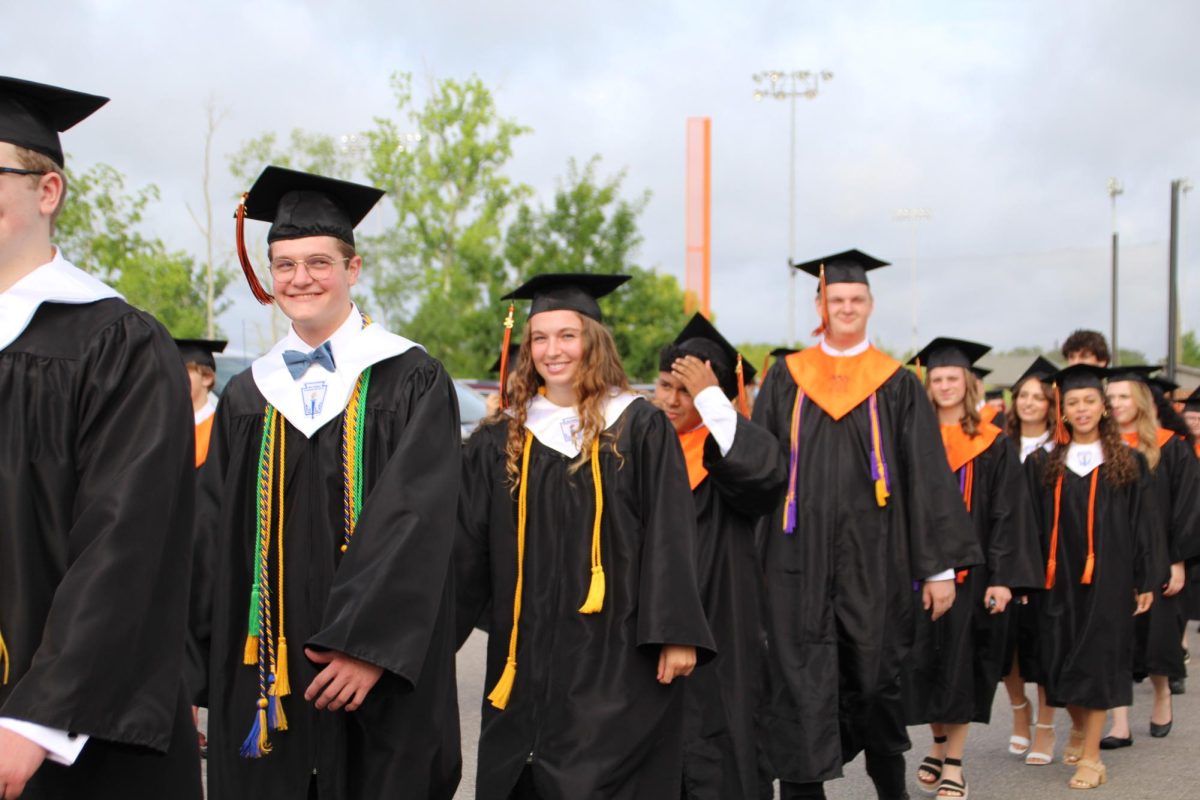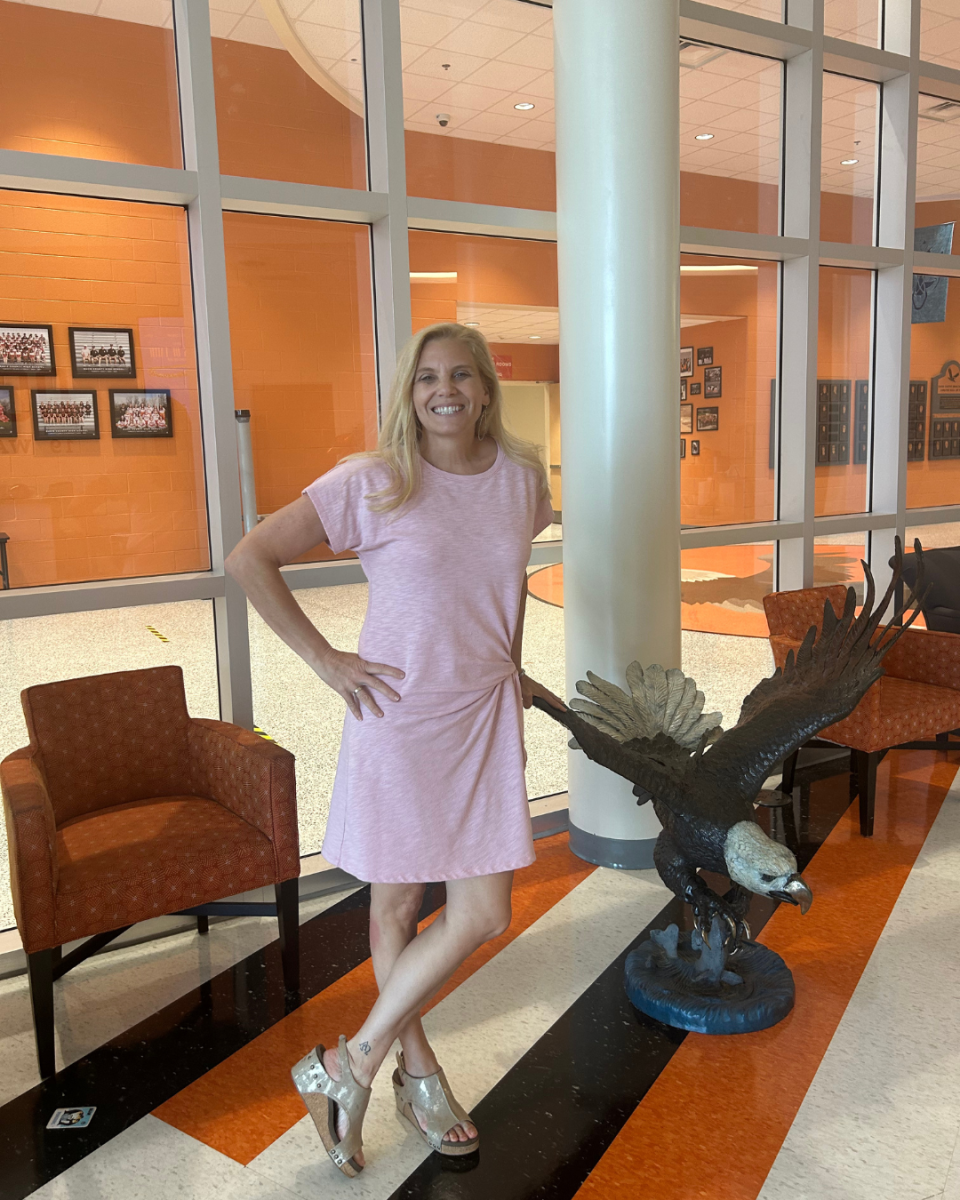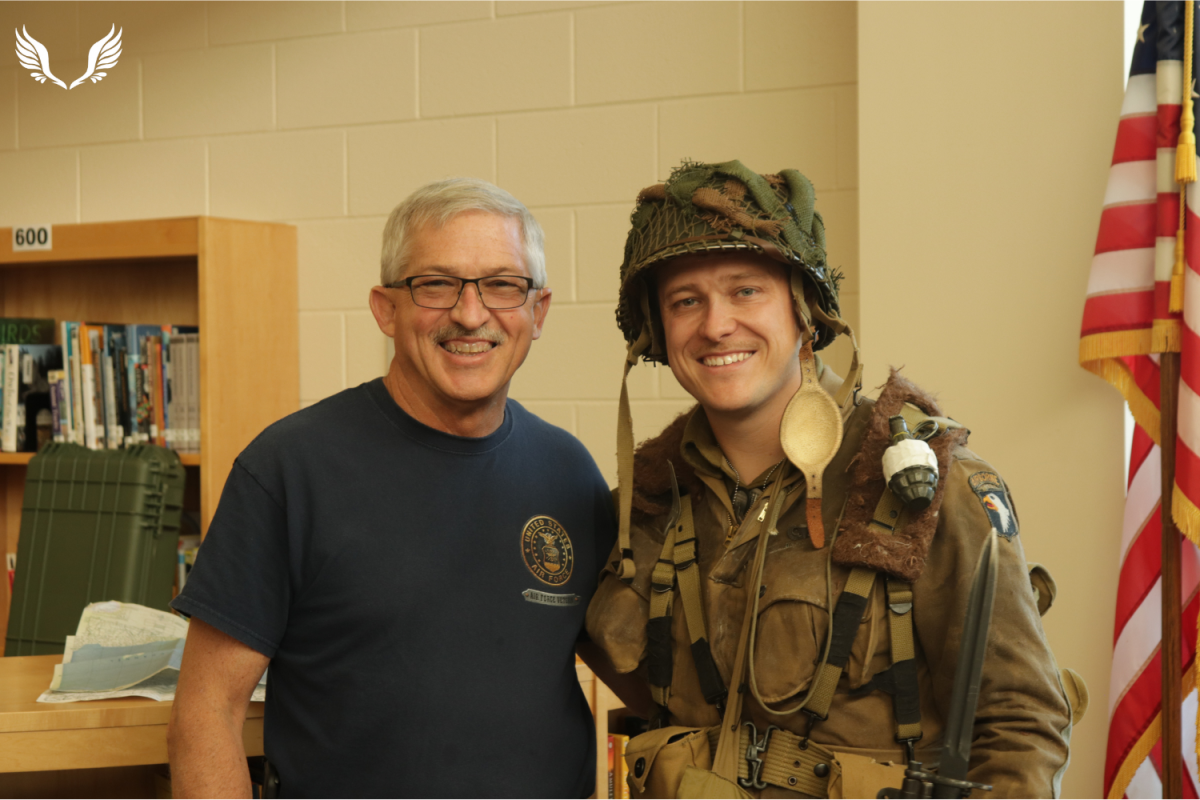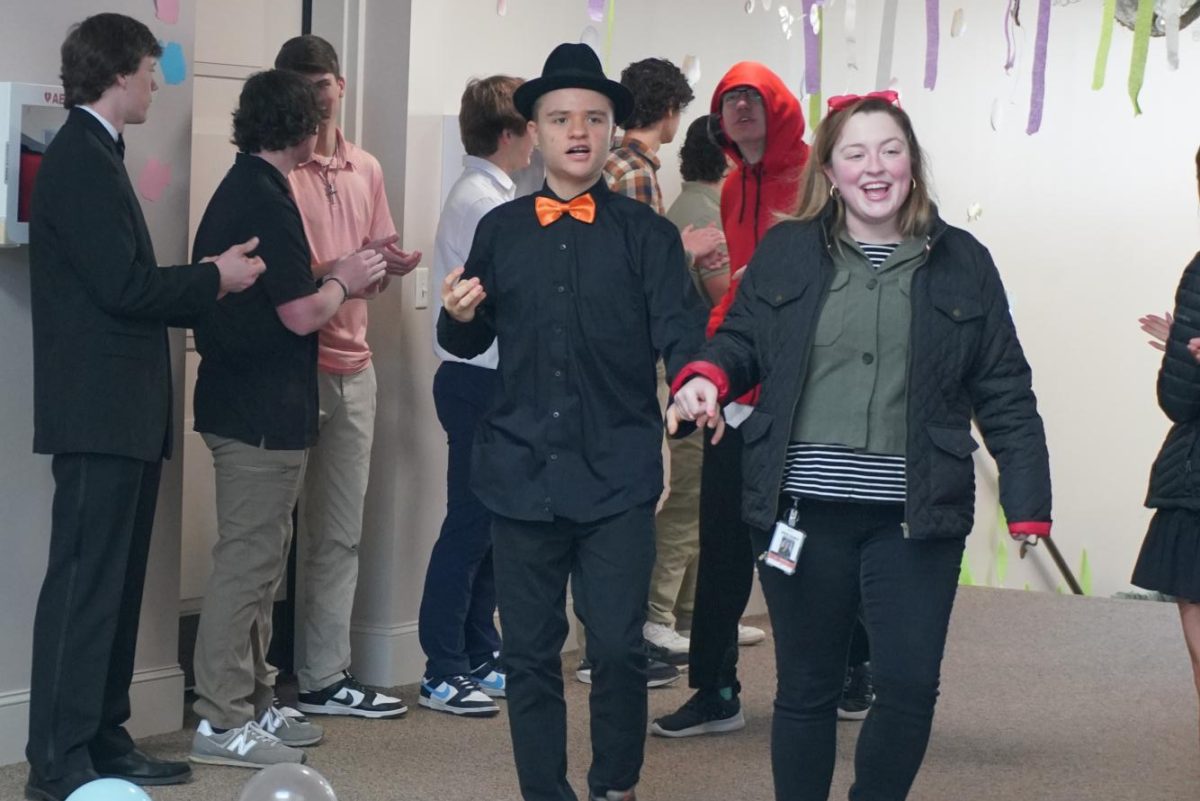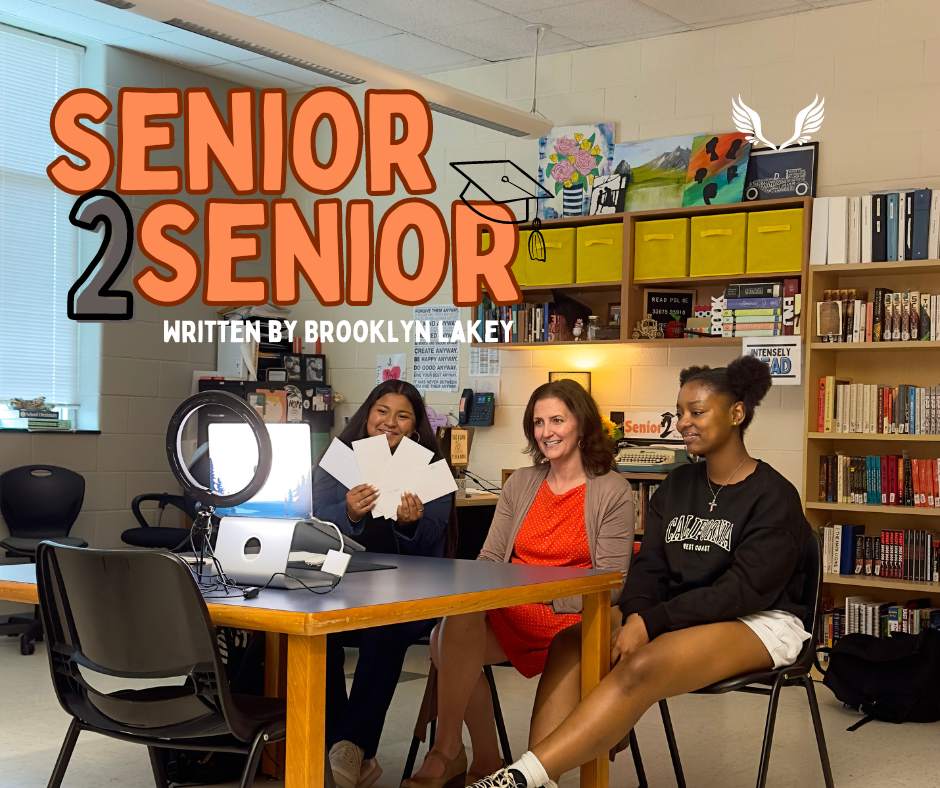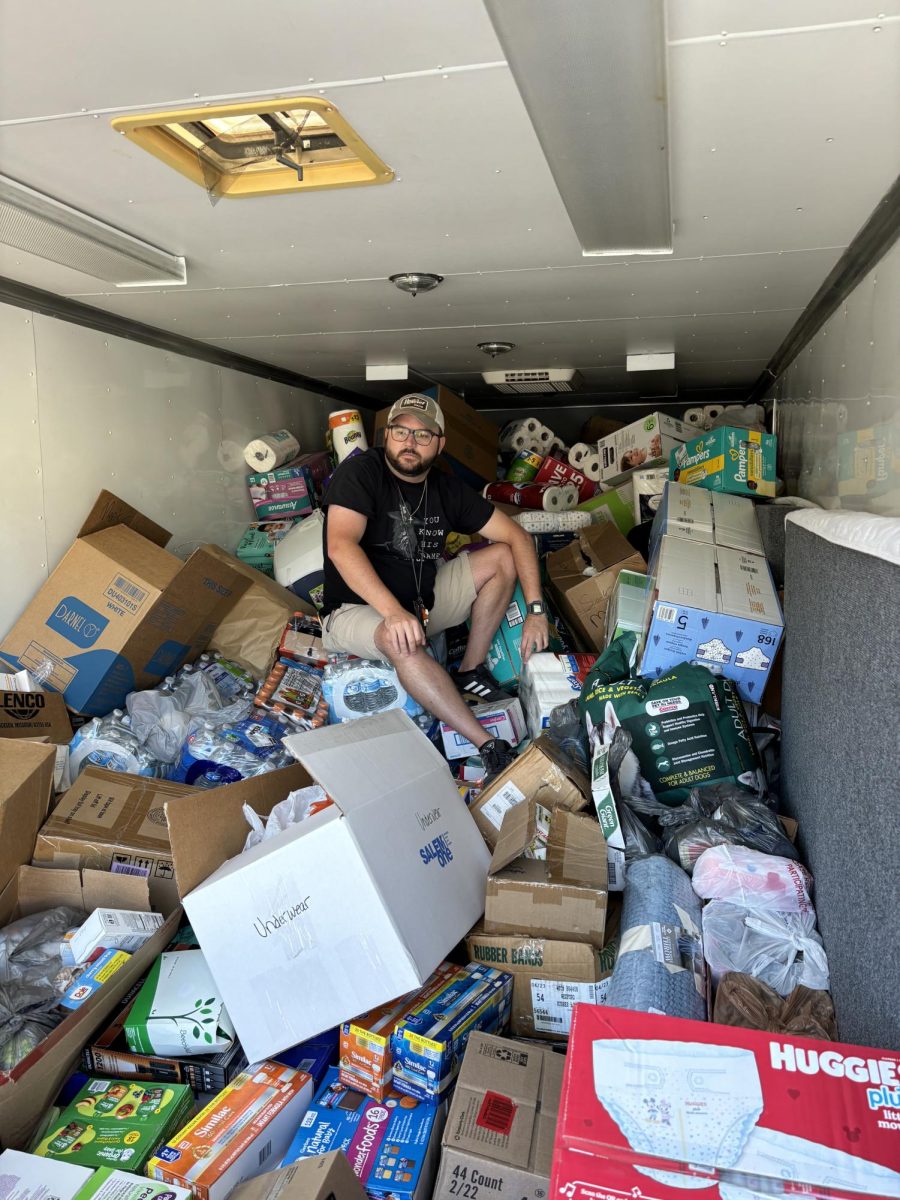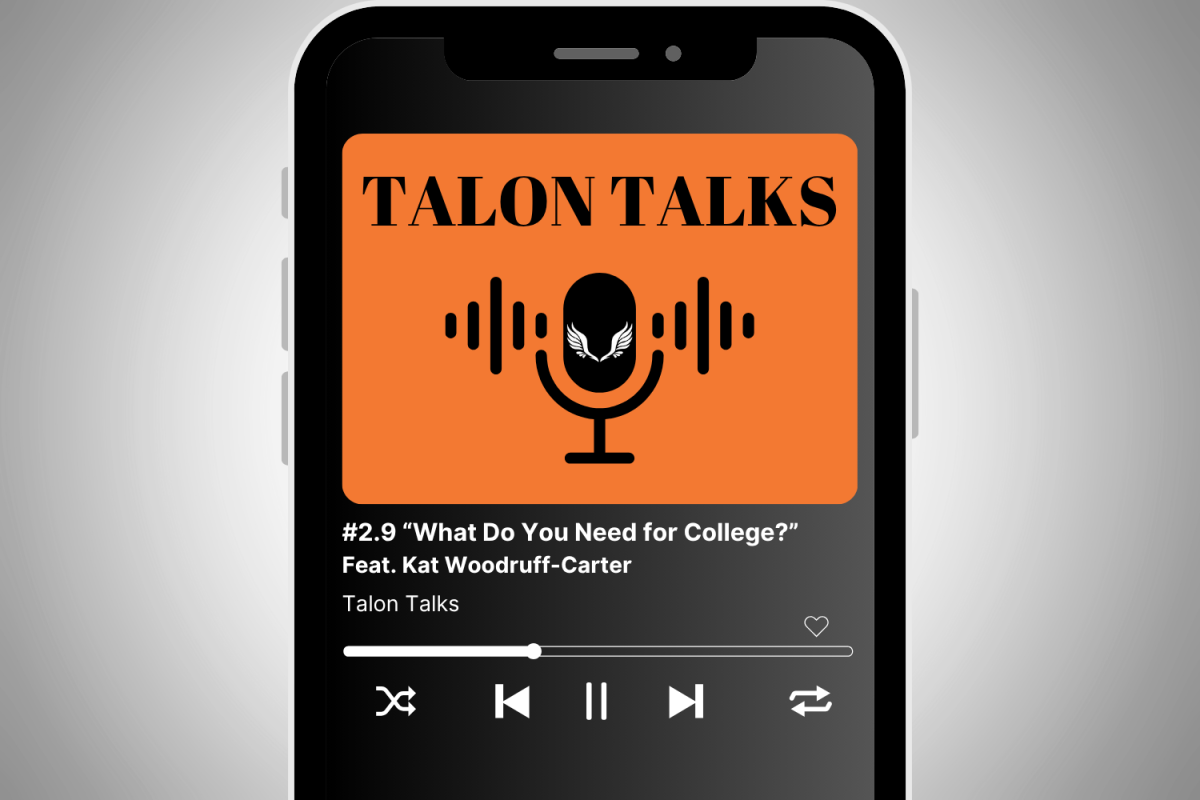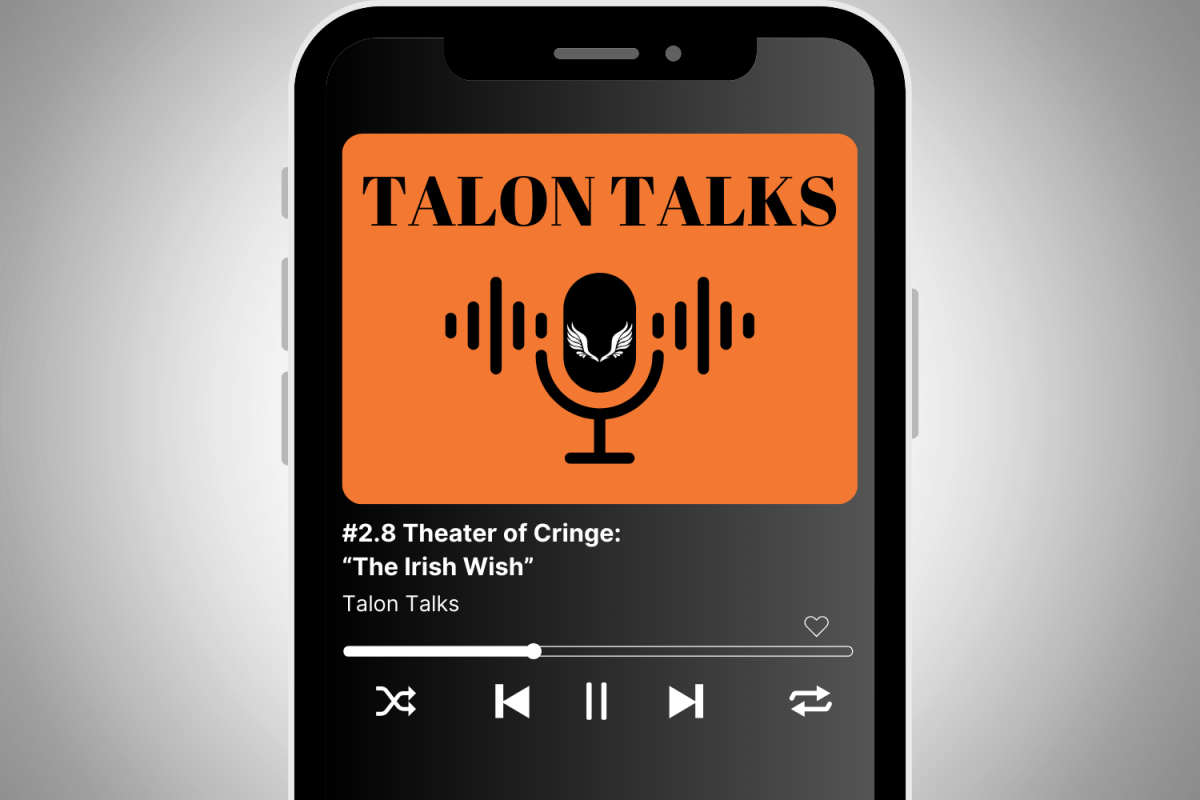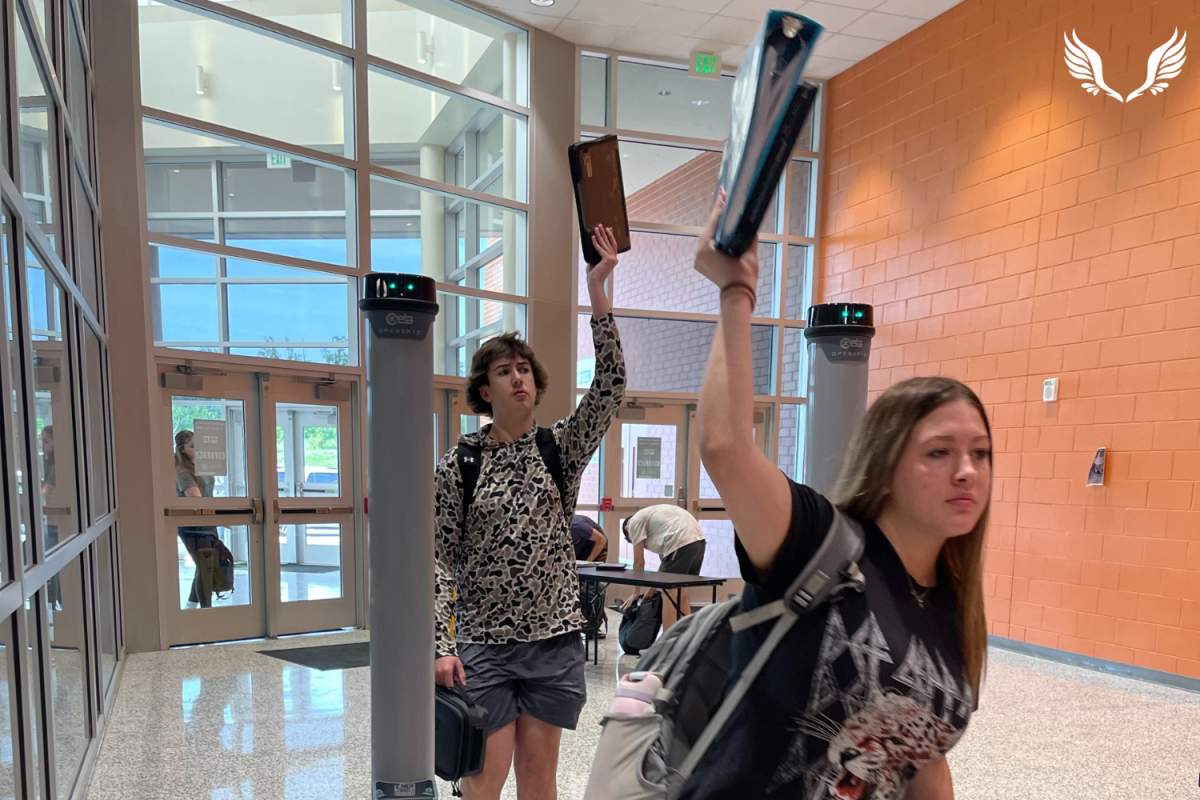Senior Ellie Addison walks into Davie County High School with roughly half a dozen friends following behind them. The students, tired but laughing and talking, quickly line up, Chromebooks and laptops in hand. The routine of students lifting their electronic devices over the newly installed metal detectors as they enter Davie High has become just one of many images of the “new normal” of a typical morning at the high school.
The procedure is a familiar one, a scene that plays out daily. One student raises their laptop high above their head and walks through the metal detector, followed by another student, then another, and then another. Finally, Addison reaches the metal detector, raises their Chromebook, and walks through. The lights turn red. They’re confused. Didn’t they hold the computer high enough to not trigger the detector? A teacher asks them to hand her their Chromebook. They go through the metal detector again. Red light. Finally, the teacher takes his bookbag, goes through it, and finds the item that has been alerting the metal detector to possible dangerous materials: a binder, stuffed to the brim with various papers and handouts.
Scenes like these are fairly common at Davie County High School. It is not rare to set off the metal detector by mistake. Whether it be a water bottle, a binder, or a Chromebook charger, there are a number of non-contraband materials that can cause the detector to go off. The ritual of having to go through the metal detector over and over, taking out item after item, trying to find what set it off, or possibly even having your bag searched, can be quite embarrassing. As Addison can attest, it’s not only binders that will trigger the detectors.
“They go off on the [Coca-Cola] cans I have in my backpack,” Addison says. “Frankly, it’s ridiculous.”
Junior Marlene Jones is another such student who has been stopped two times thus far, neither of which were for any dangerous materials.
“I think one time I got stopped because I brought an umbrella through there,” Jones said.
In February, when we first covered the metal detectors, it was reported that some students found them unpredictable and inefficient. For students like Jones, that opinion has not changed.
“I actually believe they’re unnecessary,” Jones said. “For the last three years, no one was complaining about needing metal detectors. Why are you putting the safety feature now, when you’ve had years to do it?”
As reported by The Weekly Talon earlier this year, the idea to install metal detectors—not just at the high school but throughout Davie County Schools—was triggered by an increase in mass shootings at schools nationwide. On top of this, an investigation from the Davie County Sheriff’s Office in February of 2024 confirmed that a student had a firearm in their possession on school grounds.
For students like freshman Sylas Johnson, the metal detectors have brought a lot of irritation, and in at least two cases, tardies triggered by “a can of Cheerwine in [his] bookbag pocket.” Despite his criticism of the detectors, though, Johnson concedes that he does feel safer since they have been installed.
“I don’t like going through them, but I think it’s a more-than-fair tradeoff,” he says. “I think the metal detectors are a step in the right direction, but I feel the general consensus among the student body is that there are no concrete regulations that make us safer at Davie. It seems like every incident is analyzed purely through a case-by-case lens, but with two thousand students, that’s just unreasonable.”
A Sense of Safety
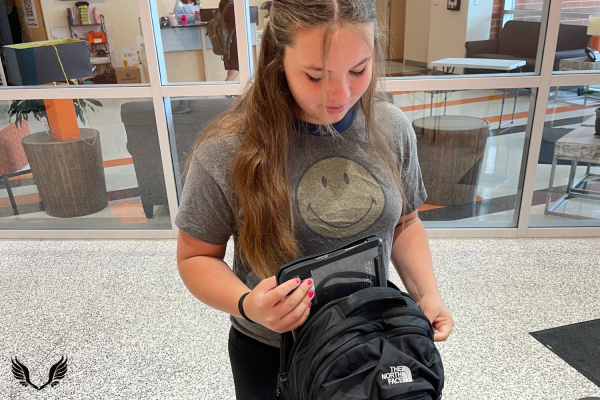
Before the official rollout of the OpenGate system, various teachers and administrators were recruited to monitor different parts of the process, few more passionate than CTE teacher Will Miner. Miner is in charge of the school’s War Eagle Security Administration (W.E.S.A.).
“I take security seriously,” Miner says. “I was adamant about forming the War Eagle Security Administration.” Miner came up with the idea for W.E.S.A. with Mrs. Miner (his sister, not his wife, as he heavily emphasizes). As part of his job, he performs secondary screenings of student bags when they repeatedly set off the detectors. The safety of Davie County High School is very important to Miner. “I think anything that can help deter, or ultimately prevent, something bad from happening is a good thing.”
While not directly involved with the inner workings of W.E.S.A., Spanish teacher Jennifer Barney is often at the bus entrance of the school in the morning. From time to time, she has stepped in to assist with the screenings.
“I had no problem with it,” Barney says. “Anything to help make us or students feel safe is good with me.”
The longer that the screenings have become part of the student routine, the smoother they have become.
“You just watch as the students go through, and then if they set the alarm off, sometimes it can be a quick fix—maybe you have an umbrella out, or they don’t hold their Chromebook up high enough. But then, if it continues to go off, we’ll just send them to the tables for Mr. Miner to check”.
While Barney takes no issue with the detectors, their presence has not changed her sense of safety at the high school.
“I’ve never not felt safe at school. I’ve always felt like this is a good place to be, and I’ve never been scared or uneasy about anything.”
Clearly, much of the discussion around the metal detectors is on school safety, and for teachers like Zach Wood, who teaches history, having discussions about these topics in the classroom is essential. Wood allows his students to freely discuss their opinions in his class, and when it comes to the metal detectors, Wood describes student opinions as “50/50.”
“There are some students that I’ve talked to that feel very safe and supported by the metal detectors, but there are others that feel that it’s a waste of time,” Wood says. “From my standpoint, I still support them. Now, do they catch everything? I’ve heard rumors here and there that some things somehow get through. I do not know the validity of those.”
Wood acknowledges that, being a member of staff, he hasn’t had to go through the detectors himself. Staff members are “trusted,” so he doesn’t have to endure the long lines himself. Unlike some teachers, Wood says he feels safer with the metal detectors than he did without them.
“They’re catching any kind of weapon that’s being brought to campus…as a teacher, in our world that we live in, that’s my biggest fear…something happening here at this school…becoming a statistic for another school shooting in America.”






